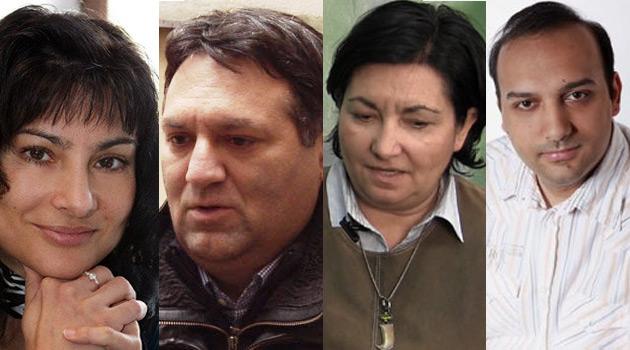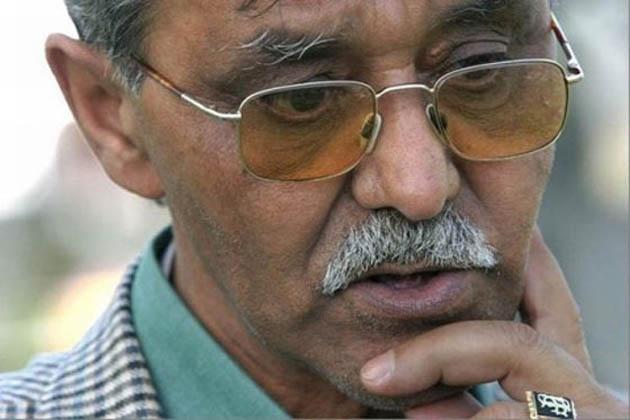David Beňák: Without "ethnic statistics", we are de facto blind

Does it make sense to collect "ethnic data" in the Czech Republic? Specifically, to collect data about Romani people with respect to crime, employment, the number of Romani children in the "practical schools", and social situations?
Could the creation of this kind of statistical data be legal and safe? News server Romea.cz has contacted authorities, politicians, and Romani activists and experts on this issue.
The topic of the collection of "ethnic data" was revived by a recent seminar held in the Czech lower house by the Platform for Human Rights and the ROMEA association. The collection of statistics on Romani people was supported there, for example, by Čeněk Růžička from the Committee for the Redress of the Romani Holocaust.
"If society is supposed to aid us Roma somehow, it must have data about us. I am an indigenous Czech Rom and our community has experienced being ‘inventoried’ several times and we know repressive units of the state have misused that information. Even though, as a Rom, I am aware of this enormous problem, I nevertheless agree that data should be collected about us," Růžička said at the seminar.
 David Beňák, member, Czech Government Inter-ministerial Commission on Roma Community Affairs
David Beňák, member, Czech Government Inter-ministerial Commission on Roma Community Affairs
I am of the opinion that data of this type is necessary. From my personal perspective, a discussion should be held about how to collect it, how to store it, to what level of detail to collect it, etc. Without such data, all parties here are de facto blind, as it were. We’re just discussing estimates and within the framework of various discussions, one side or the other momentarily prevails. It is possible to view the issue of the collection of ethnic data through the lens of the public interest. Through the process of discussion, it is necessary to find a consensual position on it.
I agree with Mr Růžička’s opinion that so-called ethnic data is necessary. Data about the concrete number of Romani children (and children from other minorities), for example, could:
a) enhance arguments for increasing the necessary financing of schools established by the regions so as to support inclusion of these children; b) help better combat the assignment of such children into the "practical primary schools" or other inappropriate forms of education; c) help track the specific needs of this group of pupils with regard to local or regional specifics and set up appropriate support measures; d) help follow the effectiveness of the money spent on those support measures.
On the other hand, it is necessary to have a solid discussion, conditioned by the visible involvement of minority representatives, about finding a safe way to collect this data and about the essentials of how it will be structured and stored so that the risk of its being abused will be minimized. Historically the collection of statistical data about Romani people has never brought us anything positive. The cautious attitude of minorities, especially Romani people, to the collection of such data is legitimate and it is natural for us to expect guarantees of our protection and safety from the state in this regard.
 Jana Horváthová, director, Museum of Romani Culture
Jana Horváthová, director, Museum of Romani Culture
Even though the collection of ethnic data is a sensitive matter, I am personally in favor of it. Such data can help us acquire an important overview, for example, of some very basic achievements or lack thereof by Romani children in the Czech education system, especially in the primary schools, which constitute such an essential crossroads in young people’s lives when it comes to their future prospects. In other areas, too, of Romani integration, which has been so difficult to promote, the collection of such data could benefit this cause.
 Cyril Koky, member, Czech Government Inter-ministerial Commission on Roma Community Affairs
Cyril Koky, member, Czech Government Inter-ministerial Commission on Roma Community Affairs
The collection of any kind of ethnic data about Czech Roma is a very sensitive topic. I would like to point out that every participant in any eventual collection of such data must first provide consent, no one can be forced to do this. That’s why I believe it will be difficult to acquire ethnic data that is relevant, we will probably only ever be discussing estimates. According to our Constitution, membership in an ethnic group or nationality is not permitted to pose a difficulty for anyone.
Nevertheless, I do understand why Čeněk Růžička is talking about this now.
 Lýdia Poláčková, member, Czech Government Inter-ministerial Commission on Roma Community Affairs
Lýdia Poláčková, member, Czech Government Inter-ministerial Commission on Roma Community Affairs
I believe this is a double-edged sword – no one will ever ensure for us Roma that such data will not be abused or that it won’t reach the extremists, etc. On the other hand, we operate with figures about numbers of Roma that are still, at the most, qualified estimates.
